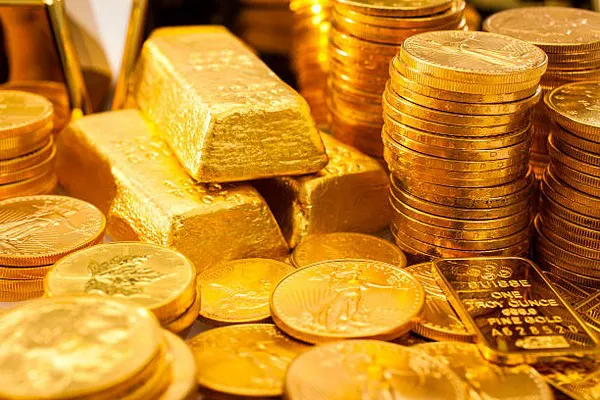Gold, coveted for its intrinsic value and timeless allure, has long been a symbol of wealth and stability. While nations boast vast reserves of this precious metal, the realm of private ownership is shrouded in mystery and intrigue. Who are the individuals and entities that hold the most gold in the world privately? Delving into this enigmatic domain unveils a landscape where secrecy meets opulence, where fortunes are measured in bullion bars. In this article, we embark on a journey to uncover the custodians of gold, exploring the narratives behind their acquisitions and the implications of their vast holdings.
The Veiled Titans:
In the realm of private gold ownership, secrecy reigns supreme. Unlike national reserves, which are subject to public scrutiny and periodic audits, private holdings are often shielded from prying eyes. Nonetheless, through a combination of investigative journalism, industry insights, and occasional disclosures, certain individuals and entities have emerged as titans of gold ownership.
One such figure is the renowned billionaire investor, Warren Buffett. While Buffett is more commonly associated with stocks and acquisitions, his fondness for gold has not gone unnoticed. Berkshire Hathaway, the conglomerate led by Buffett, made headlines in recent years with significant investments in gold mining companies. Although the exact quantity of physical gold held by Berkshire remains undisclosed, analysts estimate the conglomerate’s holdings to be substantial, cementing Buffett’s position as a key player in the world of private gold ownership.
Another notable entity in the private gold arena is the central banks of various countries, particularly those with a history of gold-centric monetary policies. These central banks, while technically part of the public sector, often operate with a degree of autonomy and discretion, allowing them to accumulate sizable gold reserves. Among the top contenders in this category are the central banks of countries like the United States, Germany, and Italy, whose gold holdings reflect decades of strategic accumulation and financial prudence.
Beyond individuals and central banks, private corporations and investment funds also wield considerable influence in the gold market. Hedge funds specializing in commodities, family offices managing vast wealth, and mining companies with direct access to gold reserves all contribute to the mosaic of private gold ownership. While specific details regarding their holdings may be elusive, their collective impact on global gold prices and market dynamics is undeniable.
Motivations and Strategies:
The motivations driving private gold ownership are as diverse as the individuals and entities themselves. For some, gold serves as a hedge against economic uncertainty and inflation, a timeless store of value immune to the whims of fiat currencies. Others view gold as a strategic asset, a cornerstone of diversified investment portfolios designed to weather market volatility and geopolitical upheaval.
Warren Buffett’s foray into gold, for instance, can be interpreted through the lens of his broader investment philosophy. As an advocate of value investing and long-term wealth creation, Buffett’s embrace of gold reflects a pragmatic recognition of its enduring appeal in times of market turbulence. Similarly, central banks’ continued accumulation of gold reserves underscores their commitment to maintaining monetary stability and bolstering national sovereignty.
In contrast, speculative investors and opportunistic traders may view gold primarily as a vehicle for short-term gains, capitalizing on price fluctuations and market sentiment. The advent of gold-backed exchange-traded funds (ETFs) has further democratized access to gold investments, allowing retail investors to participate in the market without the logistical complexities of physical ownership.
Challenges and Controversies:
Despite its allure, private gold ownership is not without its challenges and controversies. The opaque nature of the gold market, characterized by off-exchange transactions and unregulated trading platforms, leaves room for manipulation and fraud. Instances of counterfeit gold bars infiltrating legitimate supply chains have raised concerns about the integrity of the market and the reliability of gold as a store of value.
Moreover, the environmental and social impact of gold mining operations has come under scrutiny in recent years, prompting calls for greater transparency and sustainability measures. From deforestation and water pollution to labor rights abuses and indigenous land conflicts, the extractive nature of gold mining poses complex ethical dilemmas that cannot be overlooked.
The Future of Private Gold Ownership:
Looking ahead, the landscape of private gold ownership is poised for evolution amid shifting geopolitical dynamics and technological advancements. The rise of digital currencies, such as Bitcoin, has sparked debates about the role of gold in a digital economy increasingly driven by decentralized finance and blockchain technology. While some view gold as a relic of the past, others see its tangible properties and long-established track record as enduring strengths in an era of digital uncertainty.
Additionally, the emergence of sustainable investing and ethical finance is reshaping the criteria by which gold investments are evaluated. Investors are increasingly scrutinizing not only the financial returns of their portfolios but also the environmental, social, and governance (ESG) impact of their holdings. As such, the gold industry is facing pressure to adopt more responsible mining practices and transparent supply chains to meet the demands of conscientious investors.
See Also What Is One-Tenth Of An Ounce Of Gold
Conclusion:
The realm of private gold ownership is a fascinating intersection of wealth, power, and intrigue. From billionaire investors to central banks and corporate behemoths, the custodians of gold wield influence far beyond the glittering surface of their bullion reserves. Yet, amidst the opulence and secrecy, challenges loom on the horizon, demanding greater transparency, sustainability, and ethical stewardship.
As the world navigates an uncertain future marked by economic volatility and environmental imperatives, the role of gold as a symbol of stability and prosperity remains undiminished. Whether held in the vaults of billionaires or the coffers of nations, gold endures as a testament to humanity’s enduring fascination with wealth, legacy, and the timeless allure of precious metals.


